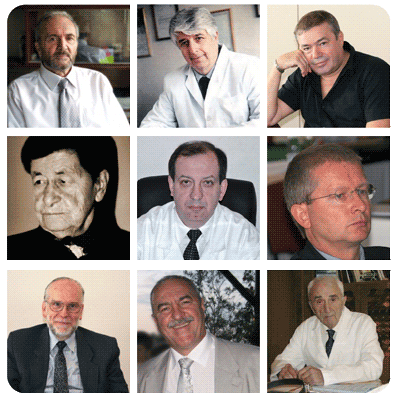The interest in finding new formulas for biotechnological research, as well as discovering new products to solve some of the most significant therapeutic vacuums moved a select group of experts to come together in the 90s. In informal meetings they discussed and reviewed some of the most important medical controversies concerning the approach to treating certain Ear, Nose and Throat (ENT) illnesses.
Dr. Margaret Mtchedlidze participated in the founding scientific committee, and became the Alma Mater of this group of experts. An Academic, doctor in Biology, Deacon of the Faculty for Subtropical Plants and holder of the Chair for Plant Ecology at the State Institute for Subtropical Cultures, was moved by her interest to find a solution for rhinosinusitis, and so contacted some of the most prestigious authorities on ENT disease.



